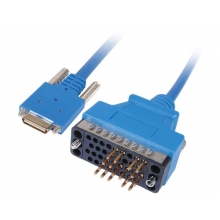- Optical Transceivers
- SFP+ Transceivers
- XENPAK Transceivers
- XFP Transceivers
- X2 Transceivers
- SFP Transceivers
- Compatible SFP
- 3Com SFP
- Alcatel-Lucent SFP
- Allied Telesis SFP
- Avaya SFP
- Brocade SFP
- Cisco SFP
- D-Link SFP
- Dell SFP
- Enterasys SFP
- Extreme SFP
- Force10 SFP
- Foundry SFP
- H3C SFP
- HP SFP
- Huawei SFP
- Intel SFP
- Juniper SFP
- Linksys SFP
- Marconi SFP
- McAfee SFP
- Netgear SFP
- Nortel SFP
- Planet SFP
- Q-logic SFP
- Redback SFP
- SMC SFP
- SUN SFP
- TRENDnet SFP
- ZYXEL SFP
- Other SFP
- FE SFP
- GE SFP
- OC3 SFP
- OC12 SFP
- OC48 SFP
- Copper SFP
- CWDM SFP
- DWDM SFP
- BIDI SFP
- Fiber Channel SFP
- Multi-Rate SFP
- SGMII SFP
- Compatible SFP
- GBIC Transceivers
- Passive Components
- Networking
- Cables
- Equipments
- Tools
- Special Offers


SFP+ Transceiver for Enterprise and Metro Networks
Milpitas, Calif., August 16, 2011 – JDSU (NASDAQ: JDSU and TSX: JDU) today announced that it has developed the first tunable SFP+ transceiver to replace fixed wavelength SFP+ transceivers and legacy products in Enterprise and Metro networks.
JDSU created the new transceiver leveraging its Integrated Laser Mach Zehnder (ILMZ) chip that was developed in 2007 and used to create the world’s first tunable XFP transceiver for telecom networks in 2009.
The tunable SFP+ transceiver will act as the ‘on and off ramp’ for optical networks, converting between electrical and optical data streams as data enters and leaves a network. Different colors (wavelengths) of light are employed to transport information optically and the tunable SFP+ transceiver will allow network operators to flexibly switch from one wavelength to another to optimize the performance of a network. Along with flexibility of wavelength provisioning, the tunable SFP+ transceiver will ease the cost of holding expensive inventory required with current fixed wavelength SFP+ products.
The new tunable SFP+ transceiver also represents the first time that full C-band wavelength tunability has been successfully demonstrated in such a compact and low-power SFP+ platform.“The invention of the tunable SFP+ transceiver is the latest example of how JDSU’s focus on R&D and vertical integration has translated into innovative and compelling new products,” said Alan Lowe, president of the CCOP segment at JDSU. “We’re very excited by initial feedback from customers who have told us that the tunable SFP+ transceiver will help them more efficiently manage their Enterprise and Metro networks.”
JDSU is currently demonstrating the tunable SFP+ transceiver to customers and expects it to be in production within the next twelve months.



















































